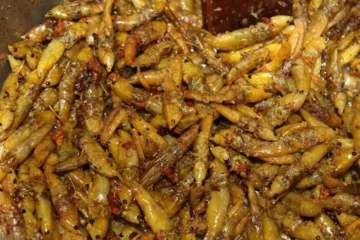Understanding the Nutritional Dynamics of Ponmo (Cow Skin): A Detailed Guide on Its Health Benefits and Associated Risks

In recent years, the global culinary landscape has seen a surge in the consumption of traditionally less favored parts of animals, marking the return of ‘nose-to-tail’ eating. Among these, one particular food item that has drawn significant attention is Ponmo, also known as cow skin. This foodstuff, quite prevalent in West African countries like Nigeria, has become an integral part of various local cuisines due to its unique texture, taste, and affordability. However, its rising popularity also incites health-related queries, making it important to understand the nutritional value of Ponmo, its potential health benefits, and the associated risks.
The Health Benefits of Consuming Ponmo:
Ponmo is predominantly made up of collagen, a protein that plays a crucial role in providing structure to our body, enhancing skin health, and aiding the functioning of the joints. Collagen is considered beneficial for the skin, as it may contribute to skin elasticity and hydration, thereby reducing the signs of aging. For those looking to supplement their diet with collagen, Ponmo can be a natural, albeit indirect, source.
Moreover, as a low-calorie food, Ponmo can be included in weight management diets where portion control and calorie count are of the essence. It’s worth noting, though, that while it may assist in curbing calorie intake, it doesn’t offer a well-rounded nutrient profile, as will be discussed later.
Potential Risks and Concerns:
Despite the aforementioned potential benefits, several health concerns surround the consumption of Ponmo. One of the primary concerns is its lack of substantial nutritional value. While it’s true that cow skin is a source of protein (collagen, to be specific), it lacks other essential nutrients. It is deficient in vitamins, minerals, and other essential amino acids that our bodies need for optimal function. This is a stark contrast to other protein sources such as lean meat, fish, or pulses, which provide a rich assortment of these nutrients. Hence, relying heavily on Ponmo for protein might lead to nutritional deficiencies.
Furthermore, the processing methods employed in the preparation of Ponmo often involve a series of boiling, smoking, and drying stages, which not only further deplete the nutritional value but may also introduce harmful substances. For instance, the smoking process can lead to the formation of polycyclic aromatic hydrocarbons (PAHs), which are potential carcinogens.
Another major concern is the rampant use of chemicals in preserving and processing cow skin. Substances such as formalin, which is used to embalm dead bodies, and sodium tripolyphosphate, a bleaching agent, have reportedly been used in the preparation of Ponmo. Regular consumption of food containing these harmful substances could lead to a series of health complications, including cancer, kidney damage, and digestive issues.
Lastly, the sourcing of cow skin can also affect the safety of consuming Ponmo. In regions where cows may be exposed to heavy metals or other toxins through their feed or environment, these harmful elements can accumulate in the skin, posing potential health risks when consumed.
Conclusion:
While the consumption of Ponmo, or cow skin, has its roots deep in tradition and cultural gastronomy, it’s clear that its nutritional benefits are limited, primarily to its collagen content. However, the risks associated with its preparation methods and potential chemical contamination significantly outweigh the benefits. Consequently, it’s advisable to consider Ponmo as an occasional treat rather than a dietary staple. As always, a balanced diet rich in fruits, vegetables, lean proteins, and whole grains should take precedence for the sake of overall health and well-being.












